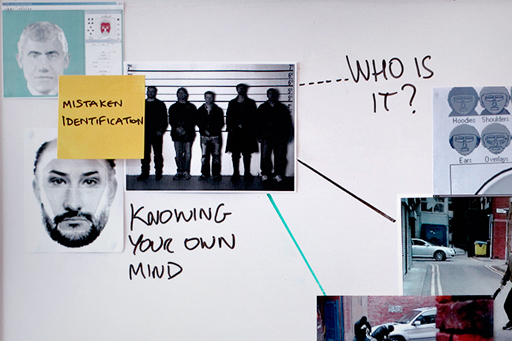1.1 Knowing your own mind
Research has found that showing a witness a line-up and asking them, ‘Who is it?’, tends to make the witness select someone, even if they’re unsure whether it’s the person who did commit the crime.
The video which you watched in the previous section demonstrates that changing the way a question is asked can have a dramatic effect on the answer and can help reduce the rate of mistaken identifications dramatically. For example, including an instruction such as, ‘The person you saw commit the crime may or may not be present in the line-up, and if you don’t think they’re present, you should say so’, can remove the suggestion that the person definitely is in the line-up. It also removes the suggestion that the witness has to choose someone.
You might be surprised to learn that making such a minor change to an instruction can have such a dramatic effect on memory and decision making. In fact, the way our memories actually work is quite different to how most people imagine. Psychologists refer to our knowledge of how our minds work as ‘metacognition’, and of how memory works as ‘meta memory’.
Next, you will be quizzed on your understanding of how your mind works.

